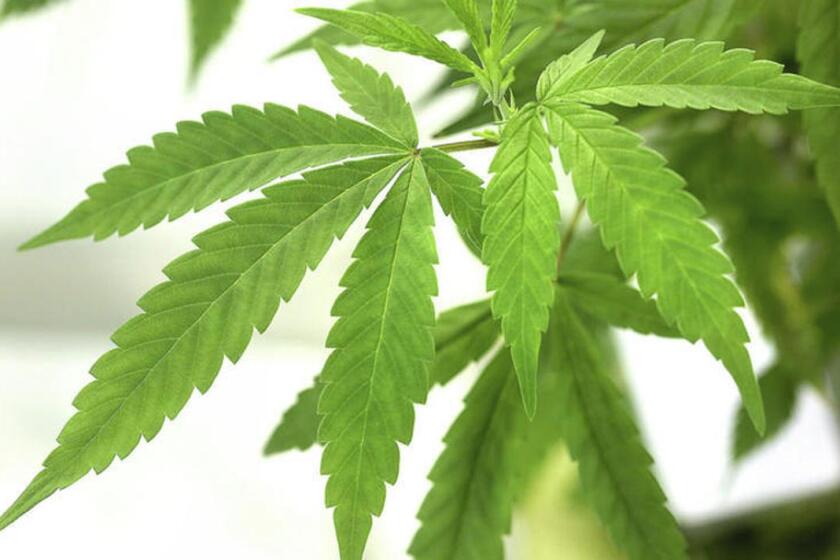I am cursed with hyperosmia.
Or else blessed. The jury is still out.
Hyperosmia is a heightened sense of smell. Scientists concede it is a real condition, but they are not sure whether it’s genetic or acquired. When I enter someone’s house, my nose can immediately detect if they have a soiled dishrag in the sink. Or if their dog has an ear infection.
I used to call the police, and later the gas company, to report a telltale leak at a residence I might pass on my morning bicycle ride.
Some smells give me a feeling of euphoria, such as snow, balsam, and the sea. Whereas others cause repulsion, including many perfumes and colognes and the sickly sweet pungency of marijuana.
ADVERTISEMENT
Which lately is of greater concern to me now that the Democrats control both houses of Congress and are likely this year to repeal the federal statute against marijuana, which currently classifies it as a Schedule 1 controlled substance just like heroin or LSD. Senate Majority Leader Chuck Schumer has said that getting rid of the federal ban is a “priority.”
I will not dispute that something needs to be done. The tangled mess of contradictory marijuana laws throughout the country is frustrating for consumers, paralyzing for law enforcement, harmful for the economy, and cruel to pain sufferers.
Currently, 15 states allow recreational use of weed, and 36, including Minnesota, have legalized it for medical use (with a bill pending to permit recreational use, sponsored by Minnesota House Majority Leader Ryan Winkler.
But the federal prohibition messes with all of them. Say, for example, you live in Illinois, where recreational weed is legal, and you have two joints (one gram) in your front shirt pocket. Or maybe you live where, presently, only non-smokable forms of cannabis are permitted, and you have a small vial of THC oil to relieve your ulcer pain. Well, neither person better visit the airport or try to get on a plane where the federal law applies and where they can be prosecuted for felony possession of a controlled substance. It’s why some airports have blue “amnesty boxes” at TSA checkpoints, where perfectly innocent travelers better ditch the evidence before they fly.
Even if the person with the ulcer just stays home, he is still at risk, ever since 2018 when Attorney General Jeff Sessions directed the FBI and DEA to enforce the federal statute and raid a residence where and whenever they saw fit.
Even setting aside the legal logistical nightmare, the federal law is an egregious human-rights violation. Not only because of the history of discriminatory marijuana law enforcement against people of color but because the law is a source of needless pain.
According to Dr. Peter Grinspoon, a professor at Harvard Medical school, cannabis has proven “effective for the chronic pain that plagues millions of Americans” suffering from a long list of ailments, from Parkinsons, epilepsy, and multiple sclerosis to irritable bowel syndrome, insomnia, and PTSD.
Though the majority of states allow weed for medical reasons, the federal ban makes every phase of growing, purchasing, shipping, possessing, transporting and taking the “controlled substance” more difficult. It also makes it more costly, since licensed companies in states where it is legal must pay double the amount in taxes; that’s because the federal ban prohibits their taking business deductions, according to a Feb. 1, 2018 Rolling Stone report.
ADVERTISEMENT
Imagine if it were a federal felony to manufacture or possess aspirin, naproxen, or ibuprofen. See what I mean?
Which brings me back to my nose. For years as a high school English teacher, I was my school’s unofficial narc. Whether I had just entered the building on a snowy December morning or was parsing sentences on my classroom blackboard in mid afternoon, I was the first to know when students were lighting up under a stairwell, in a doorway, or in a restroom. I would have to stop what I was doing, bust the offenders, collect their identification, and walk them to the disciplinarian’s office.
Years after leaving high school, I associated the skunky odor with students getting high, cutting class, and dropping out. And I still don’t know if I’ll ever be able to disassociate the smell of weed from an overwhelming sense of failure.
According to a recent poll, 70% of all Americans favor legalization. And for reasons elucidated above, I am willing to join the crowd, as long as the repeal of the federal ban mandates that states, no matter their other regulations, forbid its use by anyone under the age of 21 and outlaws smoking by people of any age in public places. Then will I welcome both Winkler's and Schumer’s bills.
Certainly, underage kids will still be able to get it and smoke it. But let them be forewarned that someone will sniff them out.
David McGrath is a former Hayward resident, an emeritus English professor at the College of DuPage in Illinois, the author of "South Siders," and a frequent contributor to the News Tribune Opinion page. He can be reached at profmcgrath2004@yahoo.com.









